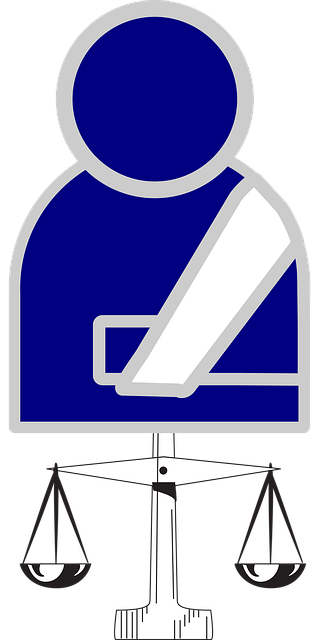Employees, whether hourly or salaried, are protected by law when claiming lost wages due to employment terminations, injuries, or abuse. To pursue these claims, which often arise from events like truck accidents, workers should gather essential documents, follow employer procedures, and complete official forms within the timeframe given. Prompt action is vital; employees should notify employers and provide medical documentation. Legal assistance may be required to navigate the system and secure compensation for lost wages. Understanding one's rights and taking proactive measures ensures financial security during difficult periods.
In today’s complex employment landscape, understanding your rights regarding lost wages is crucial. Whether you’re an hourly or salaried employee, unexpected wage deductions can arise from various situations. This comprehensive guide delves into the process of filing a lost wages claim, empowering employees to navigate their legal framework. From identifying common scenarios like unpaid overtime to addressing incorrect pay cuts, we provide a step-by-step approach to ensure your rights are protected and just compensation is secured.
- Understanding Lost Wages Claims: Rights and Legal Framework
- Process of Filing a Claim: Step-by-Step Guide for Employees
- Common Scenarios Leading to Lost Wages and How to Address Them
Understanding Lost Wages Claims: Rights and Legal Framework

When it comes to understanding lost wages claims, both hourly and salaried employees have specific rights protected by a robust legal framework. These claims are crucial in ensuring that workers receive fair compensation for any earnings they lose due to various circumstances, such as employment termination, workplace injuries, or even instances of nursing home abuse. The process involves navigating complex legal terrain to ascertain the validity of the claim and the responsible party.
In the event of a truck accident, for instance, a client recovery strategy may include pursuing a lost wages claim against the at-fault party or their insurance provider. This is where a qualified truck accident attorney plays a vital role in guiding individuals through the legal system to secure what’s rightfully theirs. The law provides a framework that supports workers’ rights to fair compensation for lost wages, ensuring they are not left financially stranded during challenging times.
Process of Filing a Claim: Step-by-Step Guide for Employees

Filing a lost wages claim is a crucial step for employees who’ve experienced income loss due to employment-related issues. Here’s a straightforward guide on how to navigate this process:
1. Gather Necessary Documentation: Collect all relevant documents, including your employment contract, pay stubs, and any medical reports or police reports related to the incident causing your wage loss. For instance, if you’ve suffered a slip and fall injury at work, ensure you have the incident report and any documentation from your doctor. If it was a truck accident, consult with a truck accident attorney to gather appropriate evidence.
2. Identify Your Employer’s Policy: Review your company’s employee handbook or policies to understand their procedures for handling lost wage claims. Some employers have specific forms or online portals dedicated to this process. This step ensures you follow the correct channels and increase the chances of a smoother claim filing.
3. Complete the Claim Form: Obtain the official lost wages claim form from your employer or their designated department. Fill it out accurately, providing all the required details about the incident, dates of employment, and the reason for your wage loss. Be as specific as possible to avoid any delays.
4. Submit the Claim: Deliver the completed form along with the supporting documents to the appropriate person within the specified timeframe. This could be an HR representative or a designated claims department. Keep a copy of all submitted documents for your records, especially if you’re dealing with complex cases like wrongful death or serious injuries that may require legal assistance.
Common Scenarios Leading to Lost Wages and How to Address Them
In many cases, lost wages claims arise from unforeseen circumstances that can significantly impact an employee’s financial stability. Common scenarios include workplace injuries or illnesses that render individuals unable to work, leading to a loss of pay. For hourly workers, this might involve missing shifts due to medical appointments or recovery periods, while salaried employees could face reduced earnings if they are temporarily disabled and unable to perform their duties. Another scenario is when an employee suffers a car accident, resulting in missed workdays, which can create a financial strain on their household. In such instances, understanding one’s rights and the legal process for filing a lost wages claim is crucial.
Addressing these issues often requires proactive measures. For instance, employees should promptly notify their employers about any absence due to illness or injury, providing medical documentation where necessary. Additionally, those who have experienced a breach of contract, such as when an employer fails to pay agreed-upon wages, may require the assistance of a car accident attorney or accident attorney to navigate the legal system and secure the compensation they are owed. Prompt action ensures that employees can protect their financial interests and seek the support needed during challenging times.
Understanding and navigating lost wages claims is crucial for both employees and employers. By familiarizing themselves with their rights, legal frameworks, and the step-by-step process of filing a claim, hourly and salaried workers can ensure they receive compensation for any unpaid or wrongly withheld earnings. Being proactive in addressing common scenarios that lead to lost wages can prevent future issues and foster a fairer work environment. Remember, knowledge is power when it comes to protecting your financial rights as an employee.






